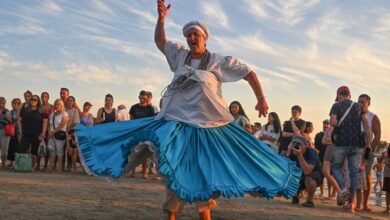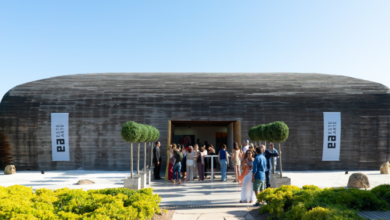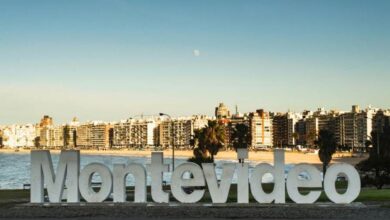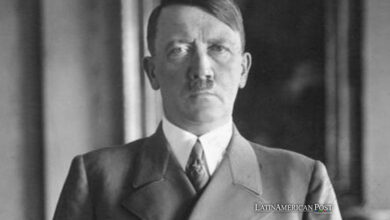Strings of Heritage: A Uruguayan Payador’s Journey
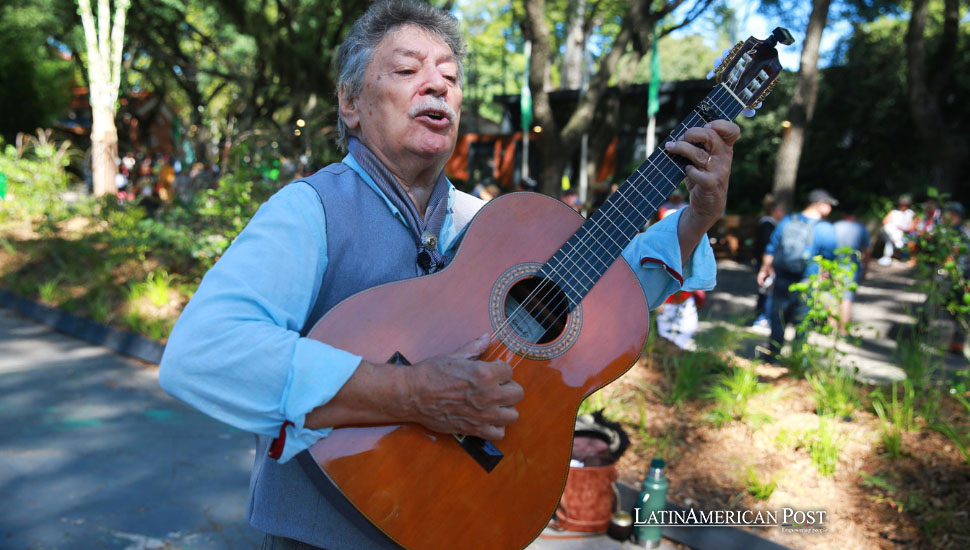
Juan Carlos ‘Lopecito’ López, a Uruguayan payador with Galician roots, blends cultures through his music, symbolizing the rich tapestry of Latin America’s heritage, where traditions like the payada serve as bridges between the Old World and the New.
López’s Personal and Historical Narrative
In the bustling atmosphere of Montevideo’s Rural del Prado, where the traditional Semana Criolla unfolds, Juan Carlos ‘Lopecito’ López stands out. A payador of Uruguayan heritage with Spanish roots, López’s life story and music embody the cultural syncretism that defines Latin America. Dressed in rural attire and cradling a guitar bought in Barcelona, he is a figure of nostalgia and cultural pride, his Spanish guitar constantly reminding him of his ancestral lineage.
López’s narrative is not just personal but historical. It traces the journey of his father from Galicia to the Southern Cone and, with it, the migration of cultural traditions across continents. His music, particularly the payada—a form of improvised musical poetry—acts as a cultural conduit, connecting the present with the past and the New World with the Old.
The Semana Criolla in Montevideo, coinciding with Holy Week, is a vibrant showcase of Uruguay’s rich gaucho culture. Here, López’s payadas are more than entertainment; they celebrate heritage, storytelling, and the ongoing dialogue between the Latin American and Iberian traditions. His ability to weave narratives around the rodeo events, improvising verses to the rhythm of his guitar, highlights the payada’s significance in this cultural mosaic.
Echoes of the Golden Age: Payada’s Historical Origins
López’s reverence for the payada extends beyond its local roots to its historical origins in Spain. Reflecting on a visit to Almagro’s Corral de Comedias, he draws parallels between the Golden Age poets and the payadores, emphasizing the shared linguistic and cultural heritage that spans continents. His narrative reveals the transformation of Latin from a scholarly language to the vernacular Spanish, enriched by Arabic influences, eventually crossing the Atlantic to evolve into the distinct yet connected tradition of payada.
The migration of these poetic forms from Europe to Latin America resulted in a unique cultural expression. In López’s performances, one can hear the echoes of medieval Spanish troubadours, their art form having adapted to the landscapes and realities of the South American plains. His songs, infused with nostalgia for Spain, underscore a deep connection to his father’s homeland. This sentiment resonates deeply in his nightly serenades to the Barcelona-purchased guitar, humorously causing familial jests.
The payada, deeply rooted in gaucho culture, has become an integral part of Uruguay’s national identity and is recognized as an Intangible Cultural Heritage. López sees this tradition as a cultural bridge, a testament to the enduring influence of Spanish culture in Latin America, and a means of communication that transcends geographical and social boundaries.
The Payada as Cultural Heritage: A Bridge between Continents
The payada is part of a rich cultural tapestry in Montevideo, where diverse musical genres coexist harmoniously. According to López, the city’s cultural landscape reflects Uruguay’s social fabric, where urban and rural, traditional and modern, local and foreign merge seamlessly. This cultural amalgamation is evident in the variety of musical expressions present in the capital, from opera to tango, candombe, and the payador’s guitar, each finding its place in the city’s cultural panorama.
López’s story and artistry reflect a broader theme in Latin America, where cultural practices inherited from European ancestors have been localized and transformed, creating unique traditions that continue to evolve. His music and life journey exemplify the dynamic interplay of history, migration, and cultural identity that characterizes the region, offering insights into the complex tapestry of Latin American heritage.
Also read: Celebrating Tradition and Youth at Uruguay’s 37th Patria Gaucha Festival
In essence, López and his guitar are not merely performers at a festival but symbols of the enduring legacy of cultural exchange between Europe and Latin America. Through his payadas, López invites his audience to traverse continents and centuries, celebrating the shared heritage and ongoing dialogue that shape the Latin American cultural landscape.

